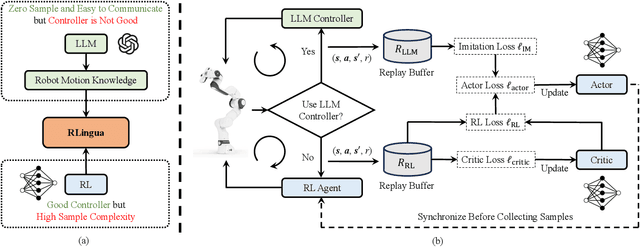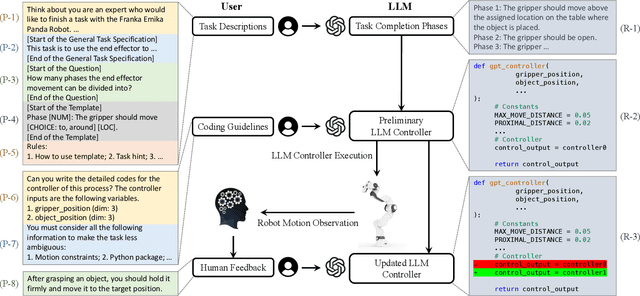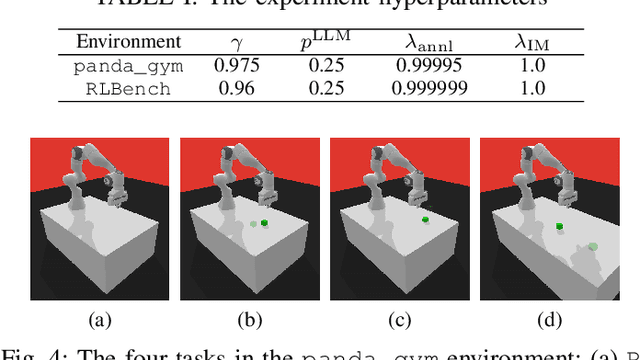RLingua: Improving Reinforcement Learning Sample Efficiency in Robotic Manipulations With Large Language Models
Paper and Code
Mar 19, 2024



Reinforcement learning (RL) has demonstrated its capability in solving various tasks but is notorious for its low sample efficiency. In this paper, we propose RLingua, a framework that can leverage the internal knowledge of large language models (LLMs) to reduce the sample complexity of RL in robotic manipulations. To this end, we first present a method for extracting the prior knowledge of LLMs by prompt engineering so that a preliminary rule-based robot controller for a specific task can be generated in a user-friendly manner. Despite being imperfect, the LLM-generated robot controller is utilized to produce action samples during rollouts with a decaying probability, thereby improving RL's sample efficiency. We employ TD3, the widely-used RL baseline method, and modify the actor loss to regularize the policy learning towards the LLM-generated controller. RLingua also provides a novel method of improving the imperfect LLM-generated robot controllers by RL. We demonstrate that RLingua can significantly reduce the sample complexity of TD3 in four robot tasks of panda_gym and achieve high success rates in 12 sampled sparsely rewarded robot tasks in RLBench, where the standard TD3 fails. Additionally, We validated RLingua's effectiveness in real-world robot experiments through Sim2Real, demonstrating that the learned policies are effectively transferable to real robot tasks. Further details about our work are available at our project website https://rlingua.github.io.
 Add to Chrome
Add to Chrome Add to Firefox
Add to Firefox Add to Edge
Add to Edge